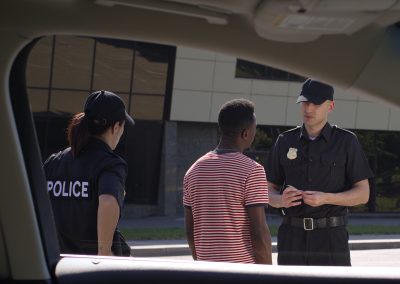The idea of “trolling” is nothing new. It’s something we’ve all done, and those of you with children are especially familiar with the idea of someone trying to push your buttons just to see what you’ll do.
Pretty entertaining, right? The idea of trolling is to draw out the fool by saying or doing something so outlandish, it’s blatantly obvious to any sane, level-headed observer that the statement or act is not serious. The point is to get a rise out of someone. Only the fool will take the bait, so to speak, and react in an outraged, shocked, or undignified manner. Why? Because only the fool doesn’t get it. Only the fool would really believe that the outrageous behavior or statement is serious. Thus the hilarity.
For example, a conversation you might have with your supervisor when trolling them might go like this:
Supervisor: “Did you finish that case report for the fraud?”
Troll: “Nah.”
Supervisor: “What do you mean ‘nah’?”
Troll: “Didn’t feel like it. Besides, I’m too good for petty work like this.”
Now at this point most people would realize that the last statement was outrageous (unless you truly do have a toxic employee) and it’s best to just ignore it. From there the supervisor has two options.
- Not realize that this isn’t serious, and react with shock and outrage. Then watch the troll grin and say, “I’m just playing!” While they toss you the completed case report.
- Realize that they’re joking, and react with a groan indicating, “Why are we playing stupid games like this?” At which point the case report will be handed to you with disappointment that you did not play the game.
Now in Reaction 1, you fed the troll. You got outraged, you got upset, and you fed the troll. You made it worth the troll’s trouble to screw with you, and you just guaranteed a future trolling.
In Reaction 2, you did not feed the troll. The troll’s attempt was foiled, there was no reaction, and there was nothing to make it worthwhile in the future. You just took the fun out of trolling. Good for you.
Cops: Too Smart for Trolls?
Lately, law enforcement didn’t realize it, but we’ve been getting trolled.
Hard.
One of the biggest trolls that I’ve been watching over the last several years is how we respond to these hoax reports coming out multiple times a month, week, and even sometimes multiple times in the same day: Fake reports of mass shootings, fires, hostage situations, and the annoying bomb threat have become painfully common.
In fact, they’ve become almost commonplace in states like New Jersey.
What if there was a way we could make this not worthwhile for the trolls?
Simple: stop feeding them.
Stop giving them the reaction they so desperately crave. Stop giving full-blown media coverage to this stuff. And any time we’re getting a report of a mass shooter on a non-911 line, let’s re-think our response.
Back in 2012, a number of “SWATTING” incidents started to permeate the Los Angeles and Hollywood area. After plenty of these incidents, LAPD came out with a new policy on SWATTING incidents: No more press releases. They were no longer going to dignify them with media.
What if we took this same approach to the massive onslaught of bomb threats we’ve been dealing with this last year.
Think about it. In July of 2015 a subject named Viktor Lisnyak admitted to being part of a gamer group that would call in bomb threats as part of a “game” and he would score points by doing this. (Read more in the indictment.) Imagine a world where guys like this didn’t get the satisfaction of seeing their handiwork on the local news, or posted on various websites?
I’d like to see us get there.
Now I know it’s not as simple as just saying, “If someone calls in a bomb threat/major incident on the non-911 line, we know it’s a hoax.” Life is not that simple. What I am suggesting is we start letting responding units know how the call came in to help judge the quality of information.
Bringing It All Together
What I’m suggesting is a practice that’s been happening in chat rooms, online video games, and various web forums for almost two decades now. It’s called “DON’T FEED THE TROLLS!” and it’s high-time that it got to our profession.
It’s time we start to have the self-awareness to realize when we are being trolled, and it’s time we start having the sense to say, “No, we’re not going to feed the trolls anymore.”
I know, Brian Willis had an excellent TEDxTalk where he talked about the most dangerous weapon in law enforcement is the two-word kiss of death, “No comment.” But in this case, it’s not a matter of blocking information, it’s a matter of not dignifying and glorifying the trolls.










0 Comments